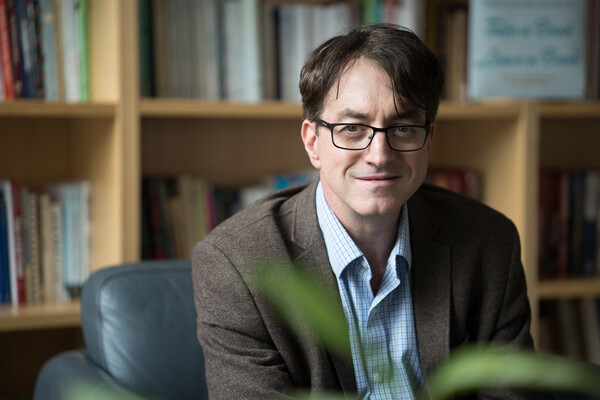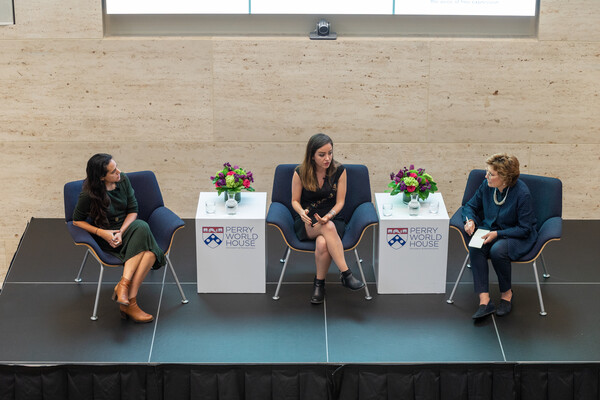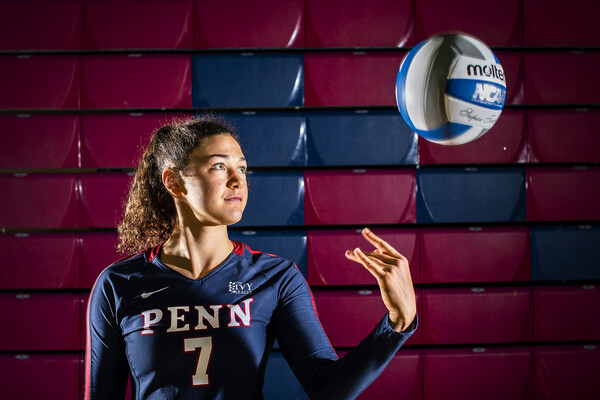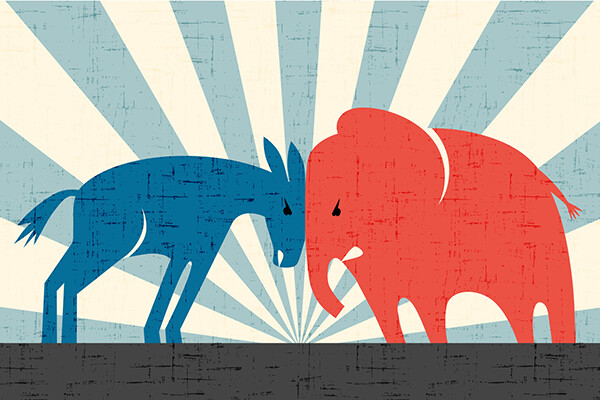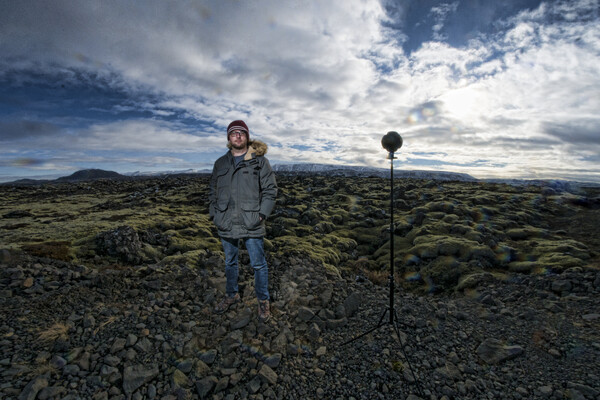11/15
Annenberg School for Communication
Side Gigs for Good
After putting in a full, impactful day at work at Penn, some faculty and staff fill their spare hours with endeavors that make a difference.
Talking the Deadspin debacle, the future of digital news, and more
Victor Pickard, an associate professor at the Annenberg School for Communication, chats with Penn Today about how the recent happenings at the sports blog are reminiscent of a worsening journalism crisis in the U.S.
Syrian journalist details dangers, challenges covering her country
During four public discussions last week as part of a “Writer at Risk” residency, Syrian journalist Zaina Erhaim described in detail the dangers she faced covering armed conflicts while in her country.
Syrian journalist to speak in Penn’s ‘Writer at Risk’ weeklong visiting fellow program
Syrian journalist Zaina Erhaim will visit Penn to discuss the armed conflict in Syria, the importance of an independent press, and the challenges of working in war-torn areas for female journalists.
Digging deep with Parker Jones
The junior on the volleyball team chats about her responsibilities as an outside hitter, her interest in Penn, the joy of beach volleyball, and coaching the freshman team while she was in high school.
The 2016 election did not increase political polarization
A new study by Annenber’s Yphtach Lelkes indicates that America is politically polarized, but the findings show no statistical difference between the levels of partisanship in 2014 and 2017.
A conversation with Julia Ticona
In the latest episode of “Office Hours,” a Penn Today podcast, Assistant Professor of Communication Julia Ticona explains her research about the gig economy and chitchats about cooking, campus, and superpowers.
A simple intervention enduringly reduces anti-Muslim sentiment
Research from the Annenberg School for Communication found that calling out the hypocrisy of collective blame—holding an entire group that’s not our own responsible for acts of a single person—significantly lessened hostile sentiments toward that group.
Signaling the trustworthiness of science
Public confidence in science has remained high and stable for years. But recent decades have seen incidents of scientific fraud and misconduct, failure to replicate key findings, and growth in the number of retractions—all of which may affect trust in science.
Exploring cryptocurrency and blockchain in Iceland
A virtual reality film, photo series, and soundscape from Penn and Rutgers document the effect this fast-growing tech industry is having on the country’s natural resources and people.
In the News
Grumpy voters want better stories. Not statistics
In a Q&A, PIK Professor Duncan Watts says that U.S. voters ignored Democratic policy in favor of Republican storytelling.
FULL STORY →
Trump Jr. hails ‘new cultural movement’ as athletes imitate ‘Trump dance’
Kathleen Hall Jamieson of the Annenberg Public Policy Center says that Donald Trump’s support among fans of mixed martial arts is evidence of how he’s tapped into segments of the electorate ordinarily neglected by politicians.
FULL STORY →
Charted: 988 awareness still low
A survey by the Annenberg Public Policy Center finds that public awareness of the 988 national suicide prevention hotline is growing but still low, with remarks from Kathleen Hall Jamieson.
FULL STORY →
Trust in science hasn’t fully recovered from pandemic controversies
Kathleen Hall Jamieson of the Annenberg Public Policy Center says that Republican lawmakers engaged in a sustained attack on a sector of science during and after the pandemic.
FULL STORY →
More than two million voters backed both Trump and abortion access
Kathleen Hall Jamieson of the Annenberg Public Policy Center says that Donald Trump’s ambiguity on abortion served him well during his campaign.
FULL STORY →





